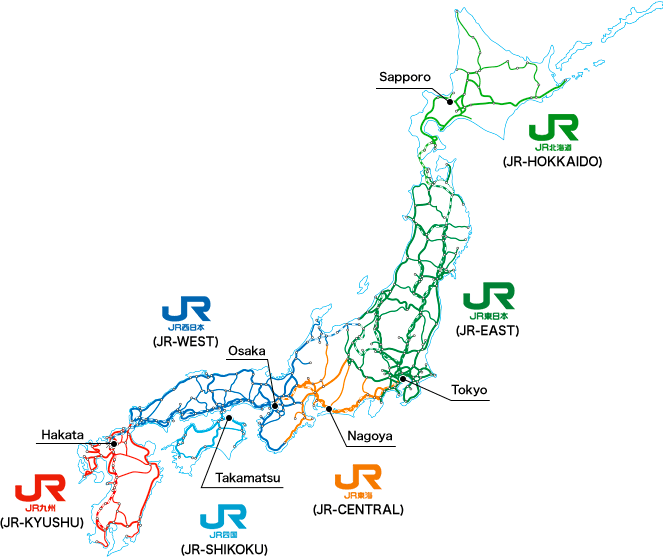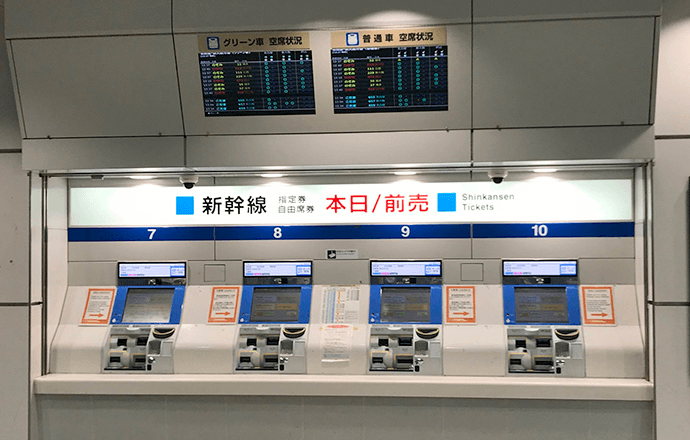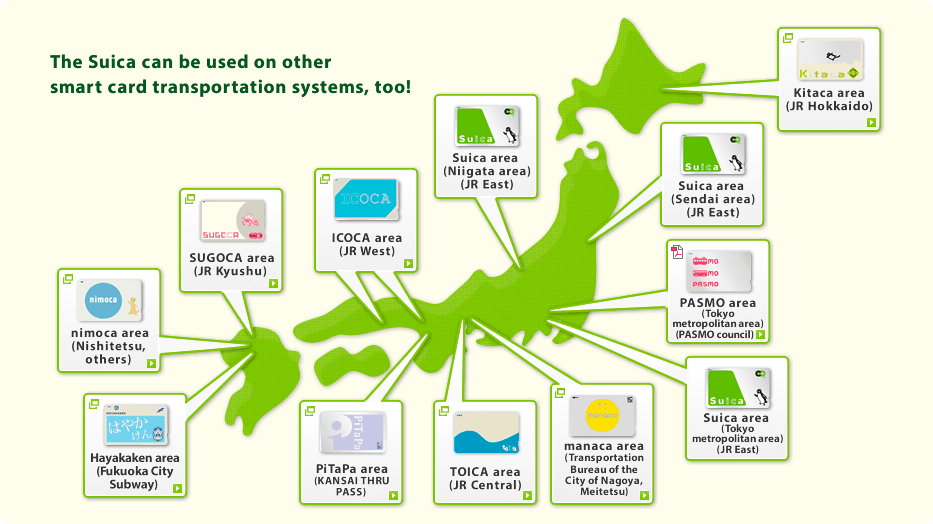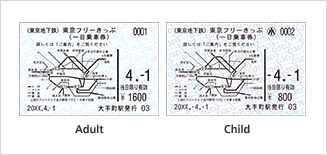Rail Travel in Japan: A quick guide
Tips for exploring Japan by rail
Japan is a country boasting some of the world’s most efficient, reliable, and well-connected rail networks. However, with the network being operated by multiple companies, and with each of them having their own ticketing system and rules, it could possibly get rather overwhelming if you are visiting Japan for the first time.
Japan Railways (JR)
Japan Railways (JR) is the national railway network, connecting major cities and towns around the country. Composed of seven regional companies, the JR group provides an extensive and efficient service and makes up about 80% of Japan’s railroads, and is a very popular option for travelers to Japan. JR services offer excellent connections between the major cities, and also provide access to more rural destinations throughout the country.

JR offers a range of ticket options, from single-ride tickets to regional passes and multi-day passes. A JR pass or regional pass is rather costly, and while it is more convenient, it might sometimes be more worthwhile to get single-ride tickets depending on your trip plan.
When should I consider getting a JR pass?
🚆 You will be traveling inter-city in Japan, and will be making multiple long distance trips in a short period of time
🚆You want flexibility to cater for last minute inter-city travel without chalking up costs
A JR pass might not make sense when…
🚆 You will mostly be staying in a single city
🚆 The regions you will be traveling in do not have an extensive JR network
How do I evaluate if a JR pass makes sense for me?
1️⃣ Have a rough itinerary of your trip: decide which areas of Japan you will be visiting.
2️⃣ Check out the coverage of the different regional passes offered by the various companies in JR group:
3️⃣ After identifying a suitable regional (or multi-day) pass, compare the prices against the option of buying single-tickets at: https://www.jrpass.com/farecalculator/ to determine if you would benefit from buying a JR pass.
Other considerations:
In addition to inter-city connections, you might also want to consider the main modes of transport within each city. For example, the JR pass would be very useful in cities like Tokyo and Osaka, but less so in Kyoto where buses and non-JR networks are more common.
Where can I buy a JR Pass?
There are multiple websites that are authorised to sell JR passes, such as https://www.jrailpass.com/ or https://www.jrpass.com/. You can also purchase the passes directly from the official JR website, though their prices tend to be higher. Alternatively, you could purchase the tickets from an authorised local tour agent at your home country. Whether you purchased it online or via a tour agent, you will need to head to a JR ticket office when you are in Japan to exchange for a pass.
You can also purchase a JR pass from a ticket office at selected major stations in Japan, but prices tend to be more expensive.
How do I use a JR pass?
Your JR pass is your ticket and you will be able to use it to enter the railway stations. You can also use your JR pass to make seat reservations at the ticket machines or ticket offices across Japan. If you purchased your pass via the official JR website, you will also be able to make seat reservations on the website. Note that it is mandatory to make reservations for some trains, so be sure to check in advance if you will need to make a reservation for your trip.
What if I don’t have a JR pass?
If you have determined that a JR pass or a regional pass doesn’t make sense for you, you will still be able to take the rail by purchasing a single-ride ticket during your trip, or getting a IC card.
Single-ride tickets
Single-ride tickets are tickets that you could purchase when traveling between two points in Japan. All train operators (not limited to just JR trains) provide the option of purchasing a single-ride ticket, though the fares and rules might differ.
Generally, you will be able to purchase single-ride tickets either at the ticket machines or ticket counters at the train station.

At the ticket machines, simply select the station that you will be traveling from and your destination, and select the number of tickets that you will be purchasing. Additional fees may apply if you purchase a green-car ticket (which are more comfortable), a limited express train (which has less stops), or if you have a reserved seat.
If you are traveling longer distances (above 100km) on a JR network, you might want to note that your ticket entitles you to as many stopovers as you want, as long as there is no backtracking, and the stopovers are not in the same zones as your departure and arrival stations. Separate seat reservations, green-car tickets, and limited express passes will have to be purchased for each segment if you will be stopping-over at various stations.
IC Cards
IC cards are prepaid cards that you can reload and use for almost all forms of transportation, and are mostly operator-agnostic. IC cards are very useful for urban transportation, especially if you will be travelling within a single city or region.

There are ten major IC cards in Japan, and are mostly similar other than the fact they are issued by different operators. The cards can be used on trains and buses operated by different companies, and can be used interchangeably in most major cities across Japan. Which IC card you purchase primarily depends mostly on which region you are in.
However, you would want to note that your travels would be limited by the coverage of the IC cards — you wouldn’t be able to use the IC cards to go to regions where it does not have coverage. You will also not be able to use the IC card when travelling between different IC card regions. If you will mostly be staying within the same city or region, a IC card would be a more convenient option than purchasing single-ride tickets.

For example, if you have a SUICA card, you will still be able to use it when you travelling within Osaka; but you wouldn’t be able to travel from Tokyo to Osaka using the same card as that is considered as travelling between regions.
The IC cards can be reloaded at ticket machines, and can also be used to make purchases in some restaurants and shops in Japan.
Day passes

If you are travelling within a single city and expect to be taking the local transport extensively in a single day, you could also consider day passes that are offered by the local transport operator. For example, if you were in Tokyo, you could get a one day Tokyo Combination ticket offered by Tokyo metro. Similar passes are also offered by the local transport operators in major cities.
Stay Connected across Japan with a Nomad eSIM for Japan
Stay connected hassle-free in Japan with a Japan travel eSIM from Nomad. Nomad offers affordable data eSIMs in over 200+ destinations worldwide, — including Japan.
Choose from a variety of local, regional, and global data plans, buy and install your travel eSIM before you fly, and get connected to a local network the moment you land. Running out of data mid-trip? Simply purchase an add-on in the Nomad app.
Planning a trip to Japan? Get a Japan eSIM to stay connected during your trip.